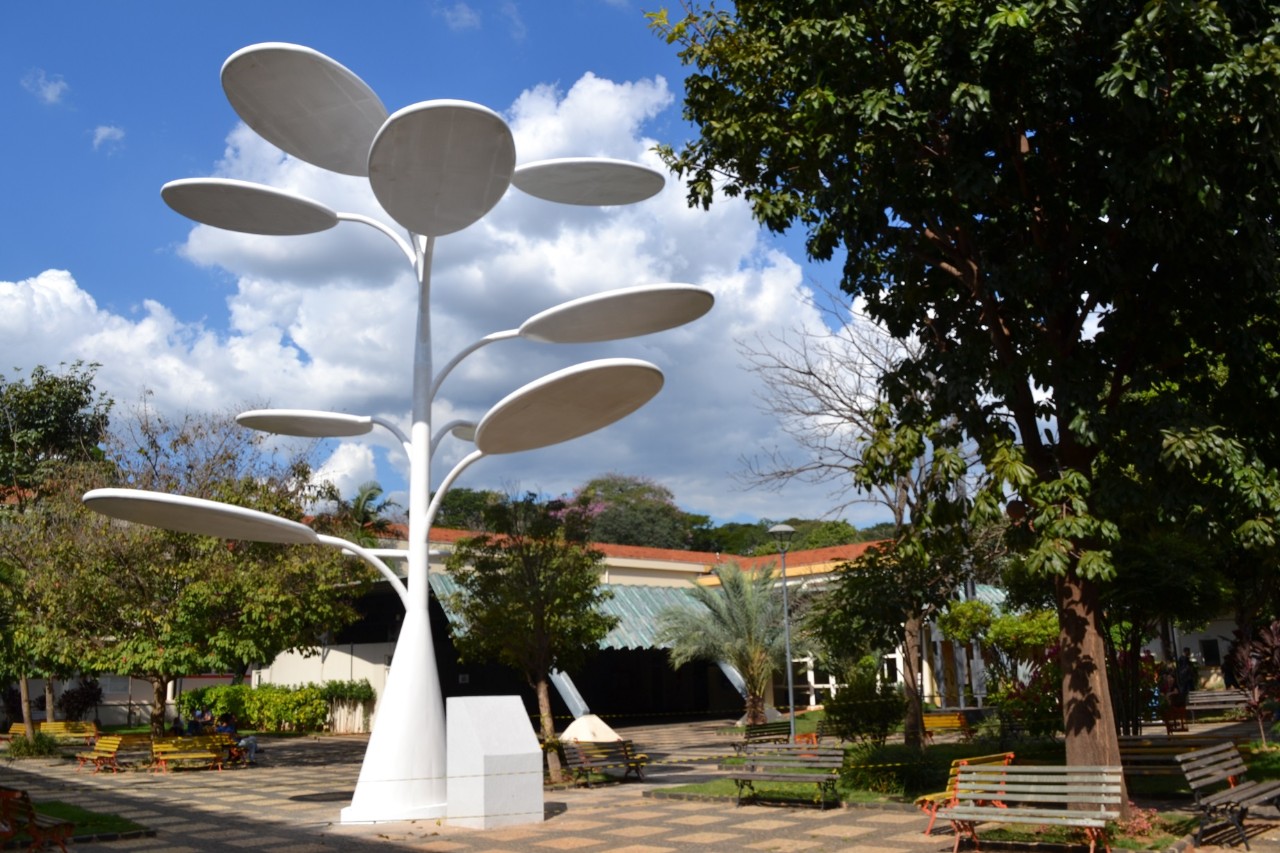A solar tree is in fact a tubular structure comprising several photovoltaic panels, able to produce sustainable energy. As part of Enel Distribuição Goiás’ energy efficiency project, we began this month to install three solar trees at educational establishments in Goiânia and Itumbiara.
Each of the metallic structures, shaped like palm trees, includes 10 solar panels and will help the universities to save energy. Three trees have already been installed: at Goiânia campus of the Goiás Federal Institute of Education, Science and Technology (Instituto Federal de Educação, Ciência e Tecnologia de Goiás – IFG); at IFG’s Itumbiara campus and at the Samambaia campus of the Federal University of Goiás.
Each tree is 11 metres tall, has 2.6kWp of power can generate around 300KWh per month, the equivalent of the average monthly consumption of two families of four.
“The tree works like a small solar plant, taking advantage of the solar light frequency to generate energy.”
Sustainability and Energy Efficiency
The implementation of energy efficiency projects at federal institutions is promoted by the National Electric Energy Agency (Agência Nacional de Energia Elétrica). The goal is that public higher education institutions attain the A rating for energy efficiency according to Inmetro (Instituto Nacional de Metrologia, Qualidade e Tecnologia, or National Institute of Metrology, Quality and Technology).
The Enel Group initiative, the first of its kind in the state, will enjoy total investment of R$18m. In addition to the solar trees, the project also contemplates replacing 50,000 common light bulbs with more economical LED models, replacing electric showers with solar heating systems for water and installing photovoltaic generation structures on the roofs of the institutions.
During the project, the institutions will also receive an energy management and monitoring system, which will provide data on generation, consumption and the reduction of CO2 emissions.
“This project is very important for IFG and collaborates with the research and studies we have undertaken, focusing on economy and electric energy generation.”
Sustainable label
The Brazilian Labelling Programme, coordinated by Inmetro, assesses and provides information on products and installations, taking into account criteria such as energy efficiency, safety, environmental impact and cost/benefit. Thus, every new or refurbished public property must receive a label saying how sustainable they are.
“We want to serve as an example. From our side, the involvement will be absolute and complete. This project has everything to do with what we defend and believe in.”


